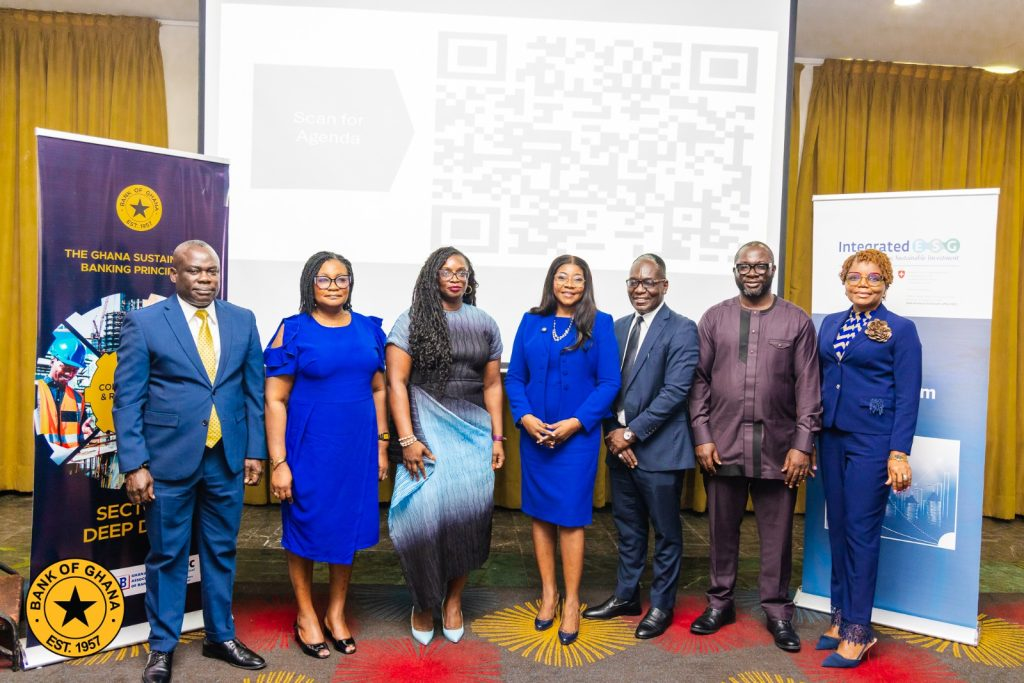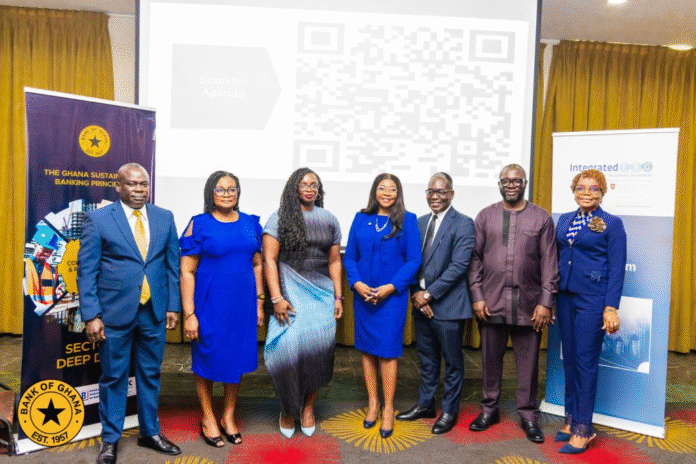The Bank of Ghana (BoG) has called on banks to align their operations with the sustainable banking principles as it steps up efforts to integrate climate risk and environmental sustainability into the country’s financial sector.
The BoG has also issued a Climate-Related Financial Risk Directive, requiring all banks to integrate climate risk into governance and risk management structures.
The directive seeks to enhance the resilience of Regulated Financial Institutions (RFIs) by integrating climate risk considerations into governance, risk management, and disclosure practices.
Banks are required to update their governance structures, risk management systems, and internal policies to comply with the directive by December 31, 2025, with full implementation starting on January 1, 2026.
A newly established Climate and Sustainability Office within the central bank will lead the implementation.
Speaking at a session on the construction sector, Second Deputy Governor of the BoG, Matilda Asante-Asiedu, said the move was part of broader efforts to safeguard the banking sector from emerging Environmental, Social and Governance (ESG) financial risks through the implementation of the Ghana Sustainable Banking Principles.
She said the construction industry, like other sectors, was deeply linked with climate, resource efficiency and financial risk, adding that rising temperatures and erratic rainfall patterns could push timelines and costs beyond projections, thereby posing risks to banks.

“These are increasingly part of the risk landscape and can amplify loss given defaults for a bank, create reputational issues, or possibly lead to regulatory penalties,” she said.
“Our goal is to ensure that banks do not simply react to these risks after they occur, but proactively incorporate sustainability considerations into project due diligence, client engagement and portfolio monitoring,” she added.
Mrs Asante-Asiedu said BoG sustained engagement was helping financial institutions to adopt practices that integrate environmental, social and governance (ESG) factors, particularly in high-impact sectors such as construction.
She said this had led to an increase in sector-wide compliance with the principles from 42.2% in 2021 to over 73.6% as of March 2025.
She urged the banking sector to be at the forefront of the ESG evolution, adding that the Bank of Ghana viewed sustainability not as a peripheral issue, but as a central pillar of financial stability, long-term value creation and responsible economic stewardship.
For his part, Mr John Awuah, CEO of Ghana Association of Banks, said despite the construction sector’s significant contributions to growth, it presented considerable environmental and social risks that, if left unchecked, could undermine the very development gains the country seeks to consolidate.
He said the Ghana Sustainable Banking Principles were not just a compliance tool but a strategic framework to reorient financial intermediation practices in ways that respect environmental boundaries, protect vulnerable communities and future-proof our banking institutions against climate and ESG-related risks.
“As banks, we cannot finance the future with tools from the past. ESG must become the new language of risk, the new language of opportunity and the new logic of value creation,” Mr Awuah said.
He called on development partners to help mitigate the perceived and actual risks associated with sustainable construction lending through a guarantee scheme tailored to ESG-aligned projects to incentivise banks to lend more assertively in this space.
In addition, the provision of affordable and long-term financing to banks, which can then be lent to developers for credible sustainability plans.
This approach can significantly reduce the price burden on borrowers and improve project viability.
He called for support for the co-development of sector-specific ESG screening tools, environmental risk calculators, and construction-specific sustainability benchmarks to aid diligence and monitoring as well as capacity building and technical assistance.
DISCLAIMER: The Views, Comments, Opinions, Contributions and Statements made by Readers and Contributors on this platform do not necessarily represent the views or policy of Multimedia Group Limited.
DISCLAIMER: The Views, Comments, Opinions, Contributions and Statements made by Readers and Contributors on this platform do not necessarily represent the views or policy of Multimedia Group Limited.


